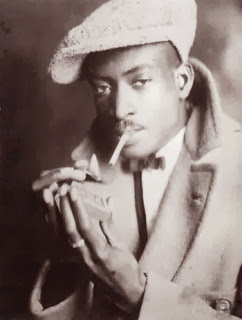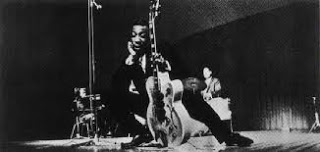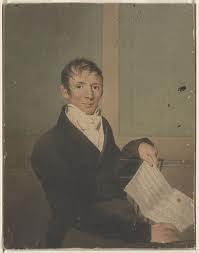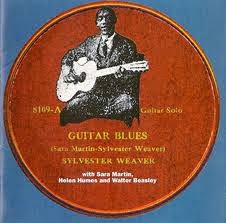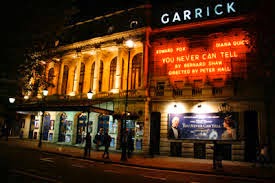 |
| London’s Garrick Theatre |
UPDATED OCTOBER 6, 2016.
Anyone familiar with London’s West End theatre district will know the Garrick Theatre in Charing Cross Road. Yet who would know there’s a connection between David Garrick, the famous eighteenth century actor whom the theatre’s named after, and the blues?
I’d venture that only rabid blues scholars or those who have read my book “America’s Gift” (or eBook “How Blues Evolved: Volume One”) would be aware of such an obscure blues titbit. For those who haven’t invested in my books (available through Amazon) here are the facts.
The word blues almost certainly derives from what communities many centuries ago called ‘the blue devils’: those imaginary evil spirits people genuinely thought caused depression. We know better today of course. Depression is all a matter of serotonin and noradrenaline/norepinephrine in the brain. But the superstition of believing humans can be possessed by malevolent spirits, as we know, stretches back to pre-biblical times and is still believed in some of our more unsophisticated societies.
One of the earliest printed mentions of the blue devils is found in this rare volume of English satirical poetry, dated from around 1599.
 |
| A rare 1871 facsimile edition of Corbet’s original volume of poems first published around 1599 or 1600. |
Compiled by an anonymous ‘Gent’ identified only as R. C., many experts think this mysterious editor was Richard Corbet, Bishop of Oxford and Norwich, a contemporary of William Shakespeare and one-time drinking companion of another major Elizabethan dramatist, Ben Johnson. The rare book, ‘The Times’ Whistle Or A Newe Daunce of Seven Satires, and Other Poems’, preserved in the Old Library of England’s Canterbury Cathedral, describes the blue devils as, “the horrors, or remorse, usually following an ill course of life”. The pertinent couplet reads:
“Alston, whose life hath been
accounted evill,
And therfore cal’de by many the
blew devil.”
By the eighteenth century, we know the term blue devils had been shortened to the blues, due to a letter written in 1741 by David Garrick, arguably the most influential English actor of all time, who wrote:
“I am far from being quite well,
tho not troubled with the blews as
I have been.”
 |
| David Garrick, said to be the father of modern theatre |
This is the earliest example of the word blues appearing in written form that we know of, even if the old luvvie couldn’t spell it correctly. A playwright, producer and theatre manager, David Garrick is the thespian said to have introduced realism to acting. As mentioned, London’s Garrick Theatre, opened in 1889, is named after him.
To put 1741 into historical perspective, this was the year North America’s first two literary magazines were produced. During January 1741, Andrew Bradford’s “American Magazine or Monthly View of the Political State of British Colonies” had beaten Benjamin Franklin’s “The General Magazine
and Historical Chronicle for all the British Plantations in America”, to print
by just three days.
Also during the eighteenth century, the expressions ‘funk’ and ‘blue funk’, meaning a state of fear or panic, were being used in England for the first time. The first place such descriptions were noted was Oxford University, where the expression probably came from the students’ slang for the blue fug of clay-pipe tobacco smoke that would fill their rooms.
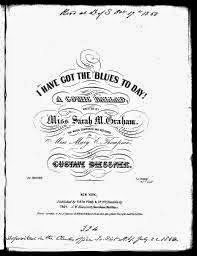 |
| The first song with blues in the title, from 1850. |
By the early nineteenth century, both the terms blues and blue funk had reached the USA, as descriptions for depression or melancholy. In 1850, the first song to feature blues in its title, according to Peter C. Muirs’ ‘Long Lost Blues’ (2010), was published in New York. Entitled ‘I Have Got The Blues To Day’, this comic parlor song about getting drunk was composed by Gustave Blesser, possibly Swiss, with non-blues-like lyrics from Miss Sarah M. Graham and a chorus that went:
“Then I was gayest of the gay, But I have got the blues to day:
Then I was gayest of the gay, But I have got the blues to day.”
By now, the old English term ‘the blue devils’ had also crossed the Atlantic, where they became associated in America with the DTs, the delirium and tremors caused by alcohol withdrawal.
Are having the DTs what Ms. Graham meant when she wrote about getting the blues today or just a feeling of sadness? Since she wrote her words some 166 years ago, how can we ever know?




